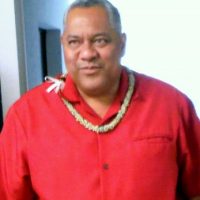
A memo issued early this month by Governor Lemanu Peleti Mauga directed the Territorial Audit Office to audit all American Samoa Government accounts, records, and books.
What was not clear is the kind of audit that will be performed.
Larson and Company, PC out of Spanish Fork, Utah, is the government’s external auditors.
As explained by an experienced accountant who spoke with KHJ News, external audits are conducted by unbiased third parties and must comply with Generally Accepted Accounting Principles. External audits are more official than internal audits and are often used to demonstrate the accuracy and reliability of an organization’s financial and operational records.
Typically, an entity like the Territorial Audit Office performs internal audits.
Internal audits are conducted by a person or a team within an organization and can help officials get an accurate picture of an organization’s fiscal and operational fitness and may focus on the following types of investigations: Financial accounting and reporting; policy and legal compliance; effectiveness of internal controls and current procedures; or operations concerns.
Internal auditors can be of great value to state and local governments in a variety of ways, says our account source. They commonly assist management in monitoring the design and proper functioning of internal control policies and procedures. In this capacity, internal auditors themselves function as an additional level of control and so help to improve the government’s overall control environment.
According to Chapter 4 of the American Samoa Code Annotated, “The Territorial Auditor must be a person experienced and competent in governmental auditing, financial management, or government operations and budgeting. The Territorial Auditor shall be a certified public accountant or a certified internal auditor holding a current certificate from any state of the United States.”
An administration bill that downgraded the requirements to be the territorial Auditor specifically the one stating that the appointee must be a US certified public accountant, was approved by the House and rejected by the Senate .
The fact that Acting Territorial Auditor Tofa Sualauvi Su’a , who will head the audits ordered by the Governor is not a US CPA, is likely to call into question the integrity of the audits.



